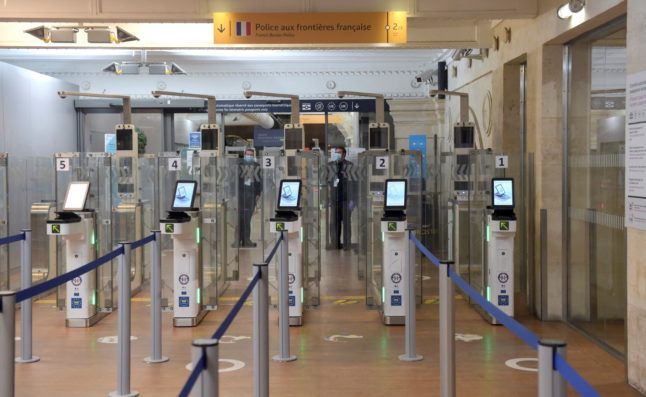While a recent surge of infections mostly affected the young, infections are also growing fast among the over-75s.
Admissions to hospital and intensive care wards are also increasing, the health agency added.
“For the first time since the lifting of the (March-May) lockdown, we are seeing an increase in Covid-19 deaths,” the agency said in its weekly update, saying 265 people had died from the virus this week compared with 129 the last.
“The intensification of the spread of the virus among the oldest age group raises fears of the continuation of hospitalisations and deaths in the weeks to come,” it warned.
The number of new infections was down slightly – by 8 percent – from the previous week. But the agency warned that this was likely an “underestimate” of infections due to saturation of testing capacity in certain regions.
There is growing concern in France about how hard it is to get a coronavirus test – especially in the Paris region – due to demand. Prime Minister Jean Castex admitted last week it had to do better.
READ ALSO: How France's 'chaotic' Covid-19 testing strategy is causing a real headache
“Not being able to test people (who may need quarantine) may have an impact on the control of the outbreak,” said Daniel Levy-Bruhl, head of the respiratory infections unit at the agency.

People wearing face masks wait in line in front of a medical laboratory to get tested for Covid-19, in Paris. Photo: AFP
Health Minister Olivier Véran said Thursday that France is preparing tighter restrictions in several cities to curtail a surge in Covid-19 cases after daily infections topped 10,000 twice over the last week.
The French Riviera city of Nice, still basking in a late Mediterranean summer, on Friday announced restrictions including a maximum of 10 people allowed to gather in its parks and on its beaches.
It will be forbidden to buy or consume alcohol in public in the city after 8pm while bars can no longer open all night.
According to the latest figures, the pandemic has claimed the lives of 31,095 people in France.
Despite the alarming figures, Castex last week steered clear of announcing new nationwide restrictions, saying the French should use caution and “succeed in living with this virus”.



 Please whitelist us to continue reading.
Please whitelist us to continue reading.
Member comments